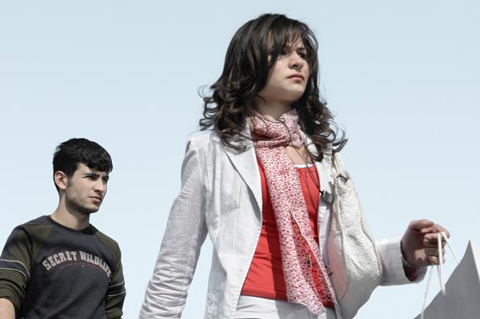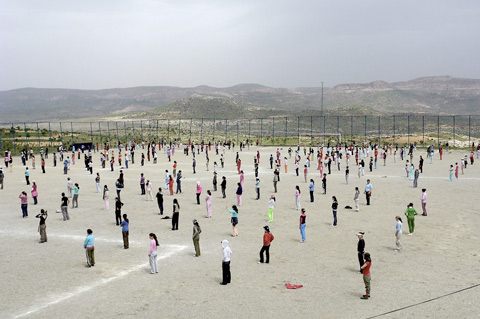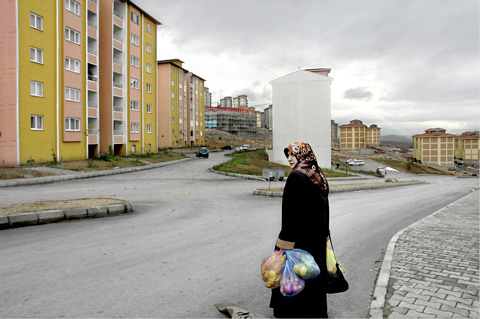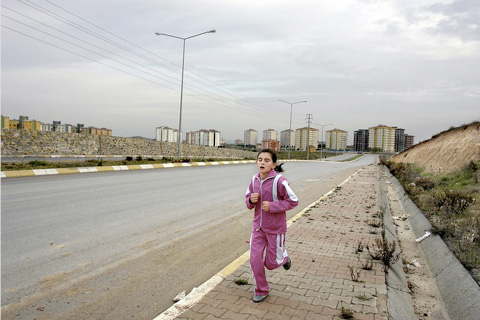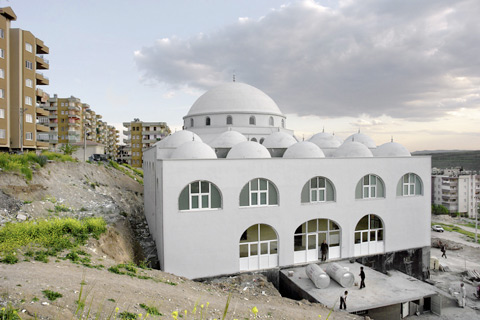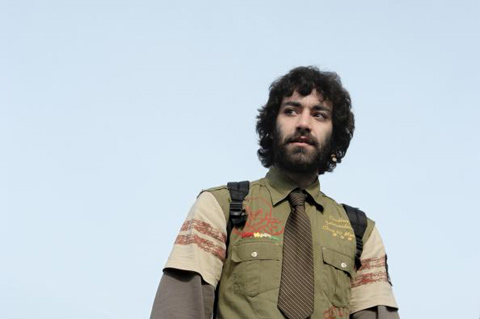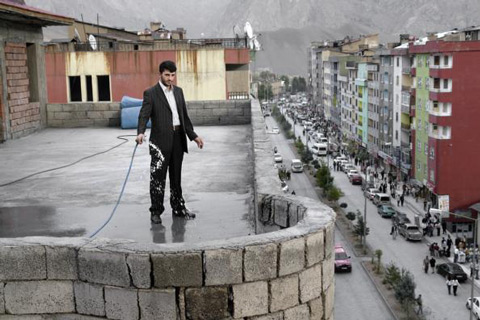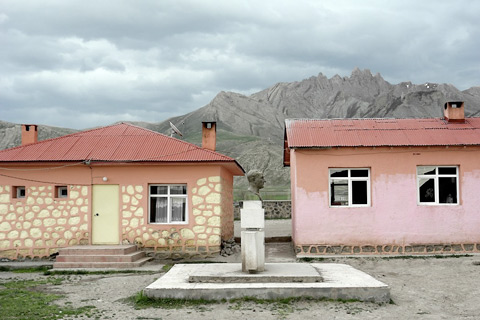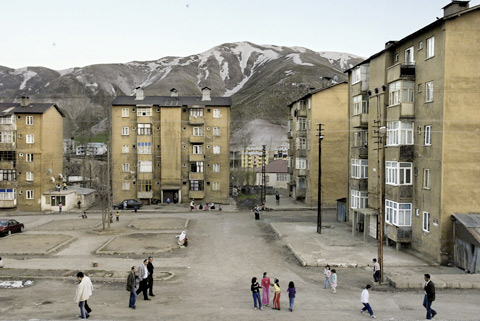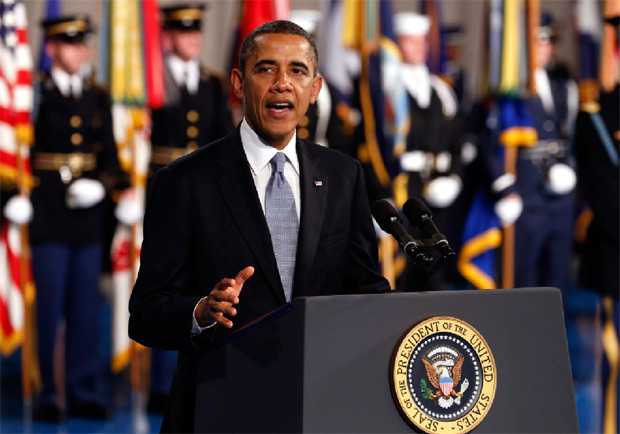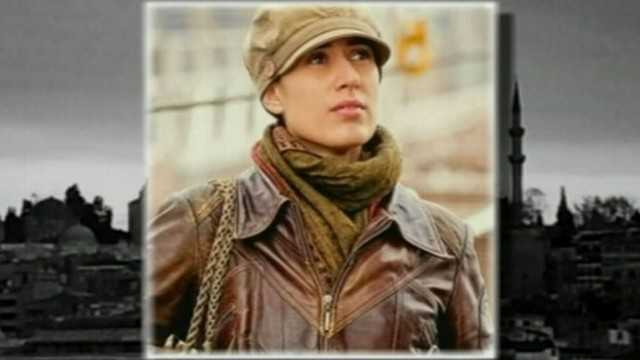By: Deniz Zeyrek Translated from Radikal.
The media coverage of U.S. Ambassador Francis Ricciardone’s meeting with journalists this week focused mostly on the DHKP-C suicide attack [at the U.S. embassy in Ankara], his criticism of the judiciary and Kurdish problems. But the picture the ambassador painted shows that the current state of bilateral ties is not very promising, let alone human rights violations in Turkey. The two countries are deeply divided on Iraq, Syria, Israel and Iran. Now they have also a crisis over al-Qaeda.
About This Article
Summary :Recent remarks by the U.S. ambassador to Turkey suggest that bilateral ties between the two states are waning, with Turkey’s stance toward al-Qaeda member Suleiman Abu Ghaith being a point of contention, writes Deniz Zeyrek.Publisher: Radikal (Turkey)
Original Title:
Turkey-US Tension Over Ghaith
Author: Deniz Zeyrek
First Published: February 7, 2013
Posted on: February 8 2013
Translated by: Sibel Utku Bila
Washington has already complained of Turkey’s failure to take a clear stance against al-Qaeda militants fighting Assad in Syria and its reluctance to fully join the global alliance against the financing of terrorism, especially of al-Qaeda. Nowadays Washington is irked that Suleiman Abu Ghaith, a prominent al-Qaeda figure, is treated as an ordinary asylum seeker in Ankara.
‘Outside actors’ in Syria
The U.S. ambassador may argue that Turkey and the United States have similar approaches on Syria, but the situation on the ground is quite different. In Ankara’s view, the clout of al-Qaeda affiliated groups in Syria and the risk of a sectarian conflict are being exaggerated, but those groups will grow stronger if Assad’s departure is further delayed.
Ankara denies that jihadists are being allowed to use Turkish territory. The United States agrees that foreign groups will become stronger if the transition process is protracted, but is already alarmed over their presence in Syria. Commenting on the issue, Ricciardone said: “It is a complicated question with no easy answers. We are concerned about outside actors. We are worried that they are obstructing and high-jacking the struggle of the Syrian people. That is a very serious worry! The reason why we are so cautious [on Syria] is that we want to make sure of whom we are supporting.”
Terrorist or ordinary asylum seeker?
Prime Minister Recip Tayyip Erdogan often accuses Westerners, especially Europeans, of tolerating terrorists active in Turkey. However, the picture that Ricciardone paints indicates that Turkey itself differentiates between “my terrorists and the terrorists of others” when it comes to issues of “terrorism” that Westerners focus on. The ambassador argues that the problem stems from Turkey’s failure to straighten its legislation on terrorism and points to the controversy in Turkey over the draft law on money laundering and terror financing.
A fresh problem that erupted ten days ago has fuelled the debate on double standards. It emerged that Suleiman Abu Ghaith, a senior aide of Bin Laden, had entered Turkey from Iran and settled in a hotel in Ankara. He was detained at the bequest of the United States, but was soon released on grounds he had committed no crime in Turkey. The authorities continue to hold him as “a guest” because he does not have a passport.
Washington has asked to interrogate Ghaith and take him to the United States under an agreement on the extradition of criminals. However, it has not been allowed to do so, with Ankara digging in its heels and asking for some papers. What irks the Americans most is the prospect of Ghaith being deported to Iran or another country of his choice instead of being handed over to them. Tough bargaining over Ghaith is currently under way between Washington and Ankara.
Concerns over a Kurdish state
The United States and Israel both believe that the emergence of a Kurdish state in the north of Iraq will be at odds with their regional strategies. They believe that such a development would divert energy supply routes to the Strait of Hormuz, which is controlled by Iran. The issue has led to disagreements between Ankara and Washington.
Ricciardone’s comments on the topic are extremely delicate but amount to a virtual lesson of foreign policy. Iraq’s territorial integrity, which used to be a “red line” for Turkey back in 2003, is today an indispensable condition for Israel and the United States, who worry that Iraq’s break-up would produce a second large Shiite state alongside Iran and result in full Iranian control over the Persian Gulf.
When Ricciardone says that Turkey should “have access to and become a route for not only 20% of the oil and gas in Iraq but 100%, and that high-quality Turkish goods should be sold not only in Erbil and Sulaymaniyah, but also in Basra and Baghdad,” he is in fact criticizing Turkey’s regional vision. He implies that Ankara is failing to see the forest for the trees.
Turkey-Israel tensions
The United States sees good relations between Turkey and Israel as a “must” for its regional strategies and wants Turkey to end the heavy sanctions it is imposing on Israel. Turkey, however, is not only refusing to move an inch back but is adding new sanctions. Most recently, Turkey on Jan. 23 vetoed Israel’s membership in the International Renewable Energy Agency (IRENA), ignoring insistent U.S. advice to the contrary.
The Turkish media had reported that the first foreign trip of new U.S. Secretary of State John Kerry would be to Turkey, and that Prime Minister Erdogan would visit Washington in February. It turns out, however, that foreign ministry undersecretary Feridun Sinirlioglu’s recent visit to Washington has resulted in a conclusion that it is too early for Kerry to come to Ankara, and for Erdogan to go to Washington. In response to a question on the issue, Ricciardone said the new U.S. secretary of state had a very busy schedule, that no date had been fixed, and that he would visit when mutual schedules permit. With respect to Erdogan’s prospective visit to Washington, Ricciardone said that “it seems possible this year,” which is a noteworthy expression.



